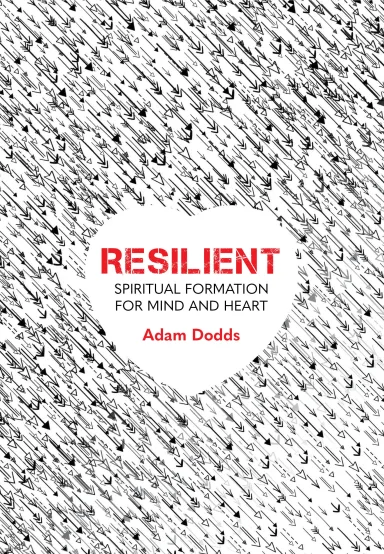When the Men’s Rugby World Cup was being contested in France and Australia, and New Zealand hosted the Women’s Football World Cup, the players entered a high-stakes, intense, and pressured environment.
Their performance on the pitch was largely due to their preparation – individually and as a team. When the whistle blows to start a match, it is too late for players to improve their fitness, strength, or skill. All they bring with them is the level of preparedness in their life up until that moment. And that moment – the high-stakes match – will reveal how prepared each person and each team is.
All people, including we Christians, experience high-stakes moments in life – moments of crisis. An unexpected redundancy, a serious accident, a car crash, a medical diagnosis, or a tragic death in the family. Jesus stated it bluntly: “In this world, you will have trouble.” (John 16:33).
Other life-changing events are positive: meeting the love of your life, becoming a parent for the first time, being promoted to a position of significant power, or inheriting a large sum of money.
Resilience is our ability to cope with life-altering situations. There is springiness to resilience – an inner strength to rebound from the knocks of life, even if we are forever marked by such experiences. We may walk with a limp, but we will still be walking.
Developing spiritual resilience involves feasting on a steady diet of God’s truth.
As a pastor, I have seen Christians who, when a life-altering event comes their way, do not have the inner resources to cope. All they have to rely on is their preparedness until that moment, which was not enough. It is tragic.
I am convinced that, most often, these spiritual meltdowns are preventable. How? Through preparedness.
In the Women’s World Cup final, the Spanish team were incredible. They embodied the truth that the best form of defence is a good offence. Their high pressure was relentless and effective in neutralising a good England team.

A good offence
In the Christian life, a good offence looks like intentionally cultivating ‘spiritual resilience’.
Developing spiritual resilience involves feasting on a steady diet of God’s truth, and embracing that truth in such a way that forms and fortifies the heart and mind. As we establish and incorporate layers of truths into our core beliefs and practices, God’s truth will increasingly direct who we are and how we live. With God’s help our minds will increasingly strengthen, and we will be known for our spiritual toughness, endurance, joy, and resilience.
Developing spiritual resilience also involves proactively identifying those areas that regularly cause people to stumble, and addressing them ahead of time. That way, as Christ-followers, we will be better prepared for whatever comes our way.
How do you and I respond well in life-altering situations? The problem is that life-altering events are intrinsically disorienting and mentally-emotionally destabilising. In such a circumstance, choosing to respond well can be very hard. I praise God that the gospel is not: ‘Try really hard to make good choices.’[1] The Christian faith is not a spiritualised version of the self-help movement. While effort is involved, there is a power at work far greater than willpower alone.
God builds inner resources inside of us that are revealed in moments of crisis.
Spiritual disciplines
Author Dallas Willard explains that as Christians grow in their apprenticeship with Jesus, God enables them to do what they cannot do in their own strength or capacity. This growth in Christ-likeness comes through appropriating God’s grace through the ‘means of grace’ or the spiritual disciplines. Willard observes that “Grace is God acting in our lives to bring about what we do not deserve and cannot accomplish on our own. But we are not passive in this process.”[2]
Willard elaborates on how this works:
“Disciplines are, in essence, activities in our power that enable us, by grace, to do what we cannot do by direct effort — by ‘just trying.’ We cannot, by ‘just trying,’ succeed in loving our enemies and heartily blessing those who curse us. But by a wise practice of disciplines in the presence of Christ, we can become people who will routinely and easily do so.”[3]
In moments of crisis, I suggest that the following factors largely determine our spiritual resilience…
All the spiritual disciplines are important. Growing in spiritual resilience particularly requires the discipline of studying God’s word. We do so with the mind that seeks understanding, the heart that seeks to love God with all, and the desire to ‘be transformed by the renewing of our minds’ (Rom. 12:2). These different postures are summed up in the Hebrew word shema, which means not only ‘to hear’, but also ‘to obey and take action’, all in response to God’s gracious self-disclosure.
As we grow in Christ-likeness in our being, thinking, and doing, we become more spiritually resilient. God builds inner resources inside of us that are revealed in moments of crisis.
Transformation
I remember a friend who received an extremely bad medical diagnosis and prognosis. His resilience through that time was remarkable. One of his friends, who was an experienced police officer, had seen a lot of people go through comparably difficult situations. He commented to me that he had never seen someone with the resilience that my friend had. This is precisely what Dallas Willard is talking about: a God-orchestrated transformation that enables us to do what, in our own strength, we cannot do.

Resilient: Spiritual Formation for Mind and Heart, by Adam Dodds
In moments of crisis, I suggest that the following factors largely determine our spiritual resilience: our picture of God, our understanding of the world, our self-identity, our inner character, and our understanding of the nature of the Christian life. In other words, what governs our response in such crisis moments are the core beliefs that we have learned and embraced and the habits that we have cultivated. It is the person we have become, the instincts we have nurtured, and the things we have believed and incorporated into who we are; these form our spiritual resilience. The more resilient we are, the more help we can be to those around us.
While there is no shortcut to spiritual resilience, the good news is that we can be prepared.
Click to read Daily Bible’s current devotional series, ‘developing spiritual resilience‘, written by Adam Dodds.
Rev Dr Adam Dodds is a Lecturer in Systematic Theology at the Brisbane Campus of Alphacrucis University College. He is also Teaching Pastor at Nexus Church, Brisbane. Find out more about him here.
[1] The early church condemned a version of this in the 5th century known as Pelagianism.
[2] Dallas Willard, “How Does the Disciple Live?”, Radix Magazine 34:3 (Spring 2009), http://www.dwillard.org/articles/individual/how-does-the-disciple-live, accessed 20 March 2019, emphasis added.
[3] Dallas Willard, “How Does the Disciple Live?”


